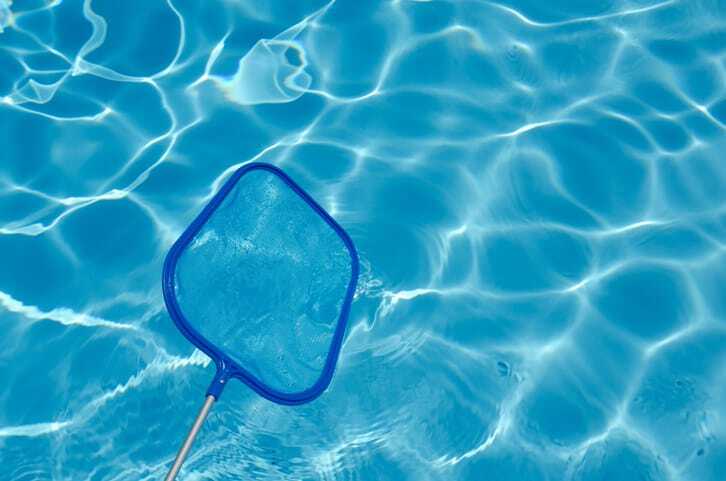
Noodle? Check! Flippers? Check! Diving toys? Check! Beautiful, clear, glistening pool…check?
New pool owners often feel overwhelmed and intimidated by how to keep their pool clean and healthy. Learning the ins and outs of a pool or spa, not to mention figuring out what chemicals to buy and when to add them, is downright mindboggling. And unfortunately, you can’t always tell just by looking at your pool or spa that maintenance is needed.
Shasta Pools is here to the rescue, with a simple beginner’s guide to Arizona pool and spa maintenance.
Why Pool and Spa Maintenance is Important
Would you dip your toe in a green pool? Of course not! But what if your pool or spa looked perfectly clear, while inside lurked algae or bacteria just waiting to irritate your skin? Regular pool and spa maintenance is important for keeping those you love safe from dirt and bacteria that could be lingering in your pool.
Your pool’s plumbing and equipment work together to create what is known as your pool’s circulation system. Dirt, debris, algae and bacteria are all culprits that will affect your pool circulation and interior appearance. Dirt and debris can clog your pool’s circulation system and reduce the cleaning effectiveness of your swimming pool. When this happens, the circulation doesn’t flow as it should, which can result in a dirty, cloudy pool.
By keeping your pool’s circulation healthy, you’ll keep your family healthy. Plus, you’ll always walk out to water that’s clear and free of algae. Preventative maintenance is an investment in protecting the appearance, integrity and longevity of your pool equipment and finish.
Now that you know why you need regular pool service, let’s look at the equipment and systems that you’ll need to keep an eye on.
Basic Anatomy of a Pool
The pool water is properly circulated when your pool pump is turned on. To minimize any negative developments in your pool water, it is important to run your pool pump regularly. We recommend running it a minimum of 8 hours a day. Larger pools will require a longer run time for adequate cleaning and proper circulation of chemicals.
Pool pump
The heartbeat of your pool, the pump keeps the water circulating.
Skimmers
Different than a net skimmer, the in-deck skimmer(s) in your pool deck are the first location that catches the large debris before it arrives at the filter.
Filter
The filter does the dirty work by clearing contaminates from the pool water.
Water Chemistry
Your pool is a delicate balance of pH, alkalinity, chlorine level and calcium hardness, all of which must remain at recommended levels.
FREE GUIDE: Keep your pool clean and balanced by downloading your free copy of 3 Steps to Great Pool Chemistry Guide.
Weekly Pool Maintenance
Balance Your Water Chemistry
The easiest way to start getting to know your pool is to use a water test kit. Balancing the water’s pH level, alkalinity, chlorine level and calcium hardness levels will minimize the chance of staining and keep bacteria from creating algae growth in your pool.
To best preserve the life, appearance and longevity of your pool equipment and interior finish, we recommend testing your pool water twice a week, along with making any needed adjustments. Here’s what you’ll want to look out for:
- pH level = 7.2 to 7.4 (year-round)
- Alkaline level = 100 to 120ppm
- Chlorine level = 1-1.5ppm in the winter, 2-3ppm when temperatures are over 95 degrees
Keep It Clean
You’ll want to take care of these cleaning chores at least once a week. During Arizona’s summer monsoon seasons, you may need to increase the amount of cleaning (and water testing).
- Use a surface skimmer or net cleaner to clear away the leaves and debris from the water’s surface
- Brush the walls and floor with a surface brush to get rid of dirt or algae that may have settled and can’t be picked up by a vacuum or net
- Optional: Make your cleaning job easier by using a self-cleaning vacuum to clean loose dirt and debris throughout the week
- Add pool shock to help your chlorine do its job
Monthly Maintenance
The most expensive maintenance costs usually have to do with the pool’s pump, so in between the chemical testing and cleaning you’re doing every week, you should also do a thorough assessment of the pump and filters:
- Make sure the pump and filter are working properly
- Clean out (or backwash if a sand/DE filter) the filter and
- Dump out the skimmer basket(s) so they’re clear of debris
Keeping your pool filtration system clean and free of debris is the best way to ensure optimum filtration of your pool water. Keeping the chemicals balanced is the best way to protect your pool equipment, interior finish and tile grout. There’s no way around it—it can be a lot of work. So whether you become the family’s pool expert or your hire a professional pool cleaning company in Phoenix like Shasta Pools, following these preventative pool maintenance efforts will ensure you can enjoy family pool memories that will last a lifetime.
Dhruv Gangwal is the Marketing Director at Shasta Pools, Arizona’s leading pool builder. With extensive experience in strategic marketing, consumer behavior, and the evolving trends of outdoor living, Dhruv is dedicated to helping homeowners make informed, confident decisions about their pool investments. He works closely with Shasta’s design and sales teams to craft educational resources that simplify the pool-buying process and highlight the latest innovations in backyard living. Dhruv’s articles provide practical advice that homeowners can trust.
Topics: